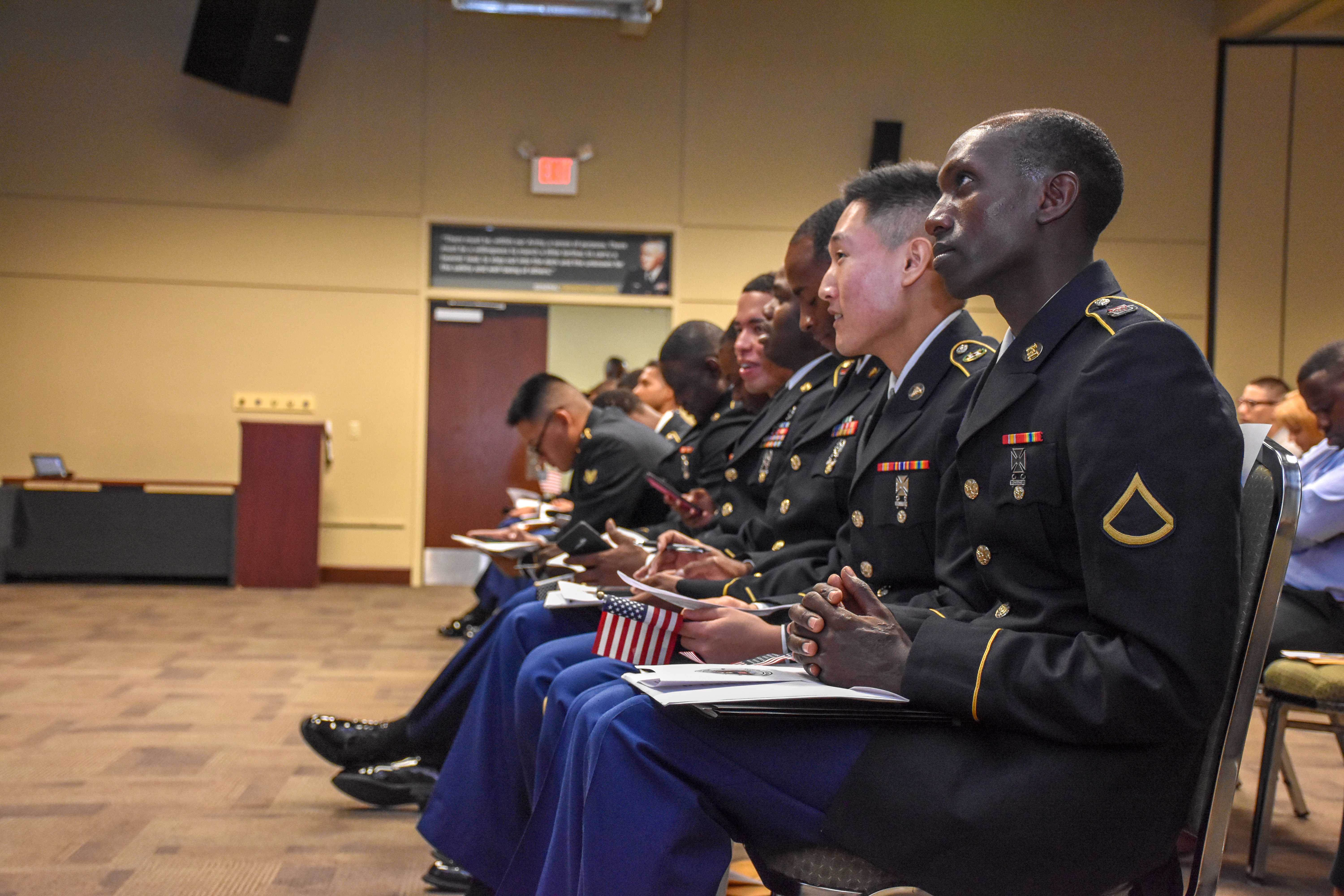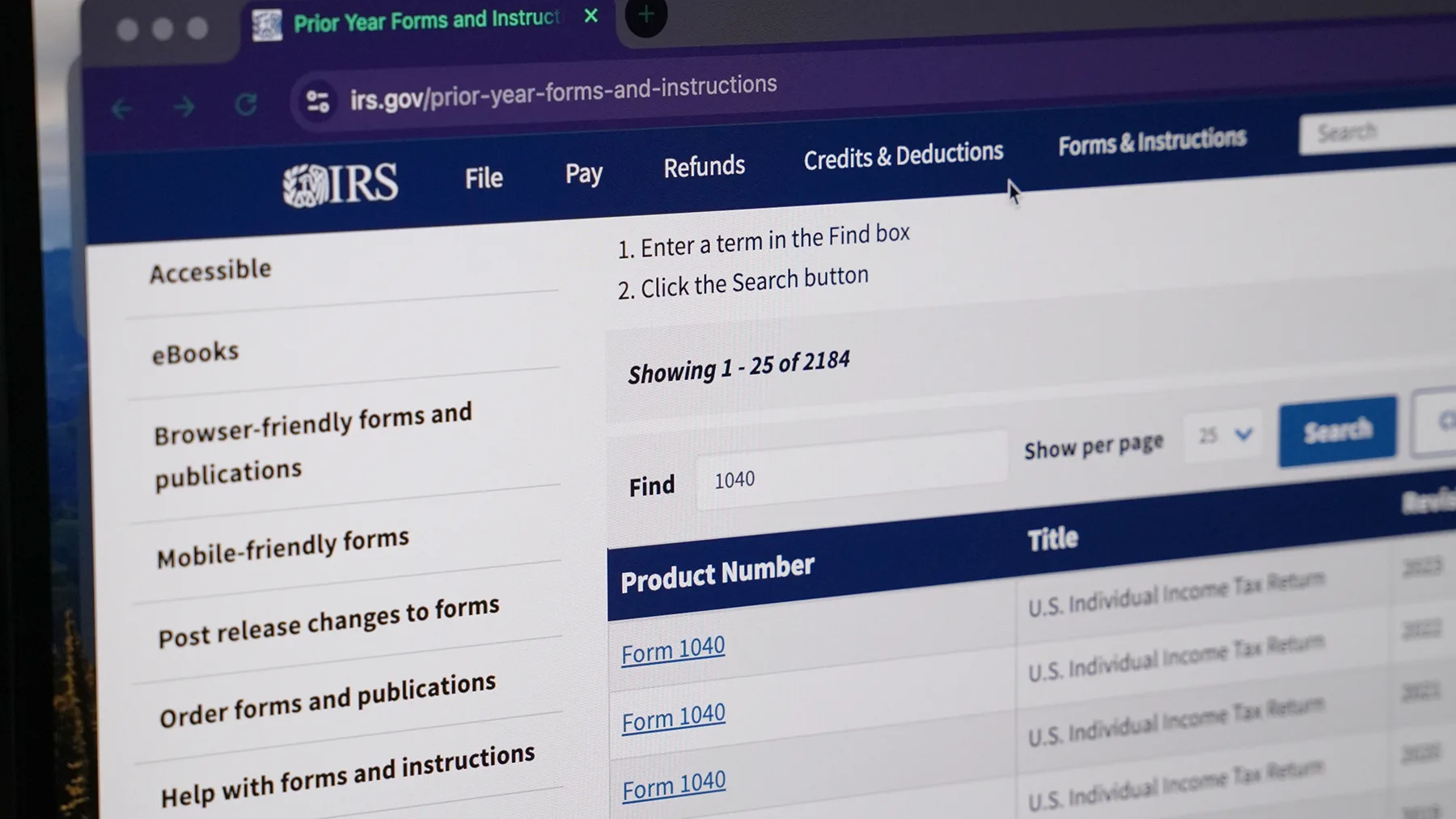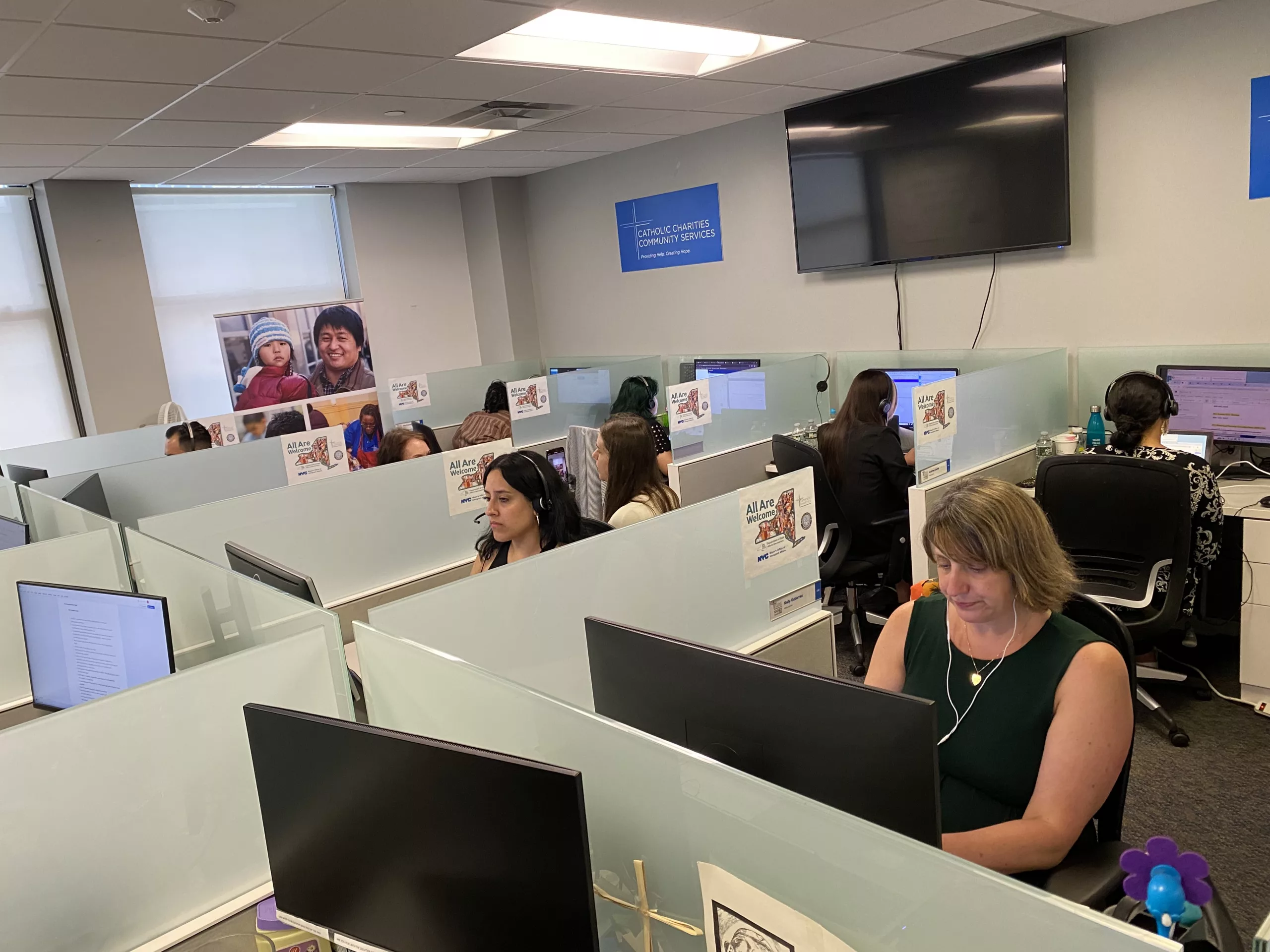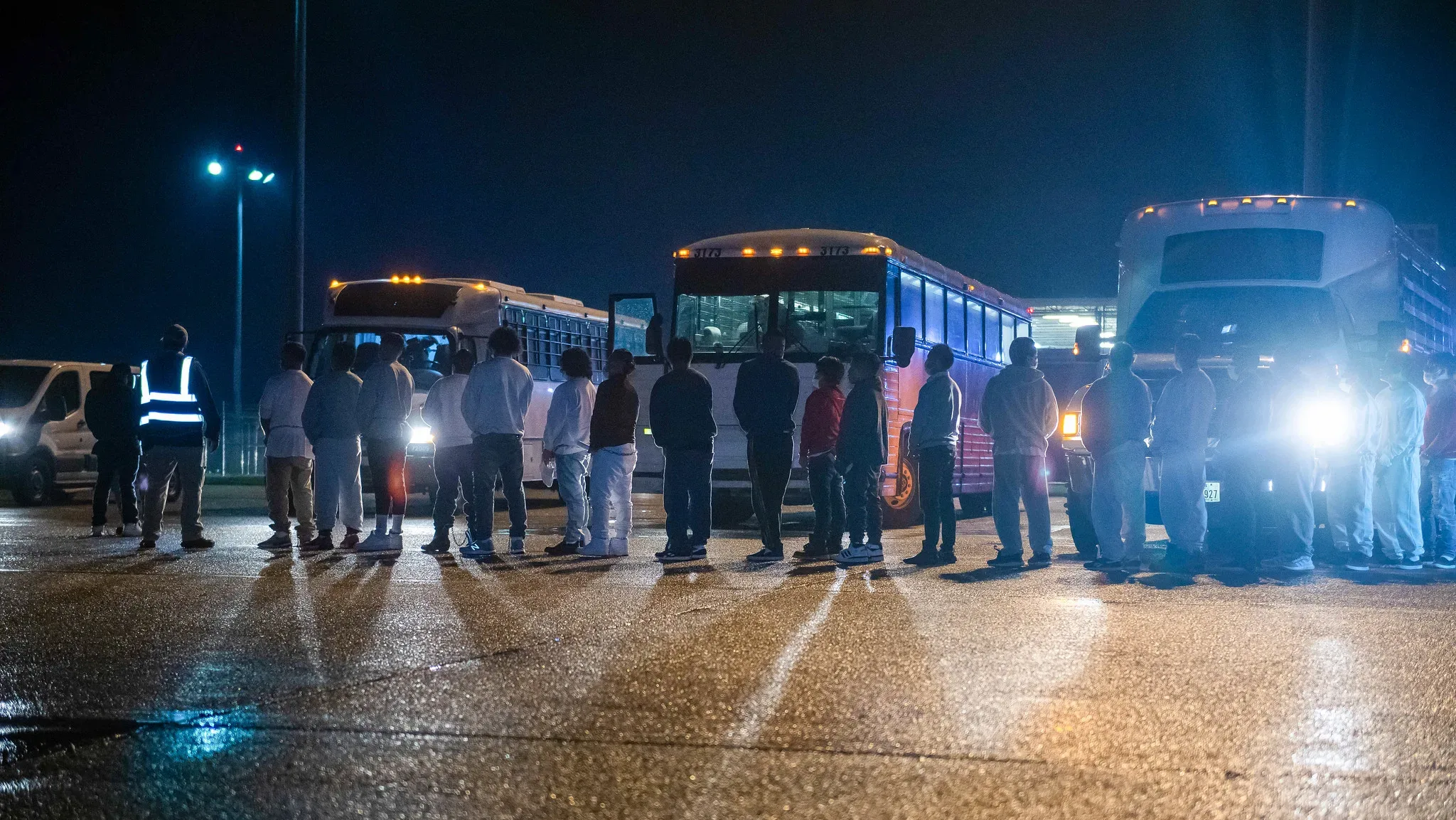Samuel’s* army reserves recruiter told him to be ready for basic training in the summer of 2016. Over two years later, he is still waiting to begin that training. “I had a plan to go and now all of those plans have crumbled,” he said. “I’ve gone through anxiety, depression, suicidal thoughts, loneliness.”
Samuel is a participant in a program created a little over a decade ago by the George W. Bush administration to recruit foreigners whose special linguistic, medical or cultural skills were needed by the military, but who weren’t citizens. Called the Military Accessions Vital to National Interests, or MAVNI, the program offered legal immigrants an expedited path to citizenship in return for their service. After just one day of service in the military, either in basic training or reserves, a MANVI recruit could apply for citizenship. The program was meant to last a year, but it was successively extended until October 2016 when the Obama administration closed down recruiting.
The shutdown left an estimated 5,200 enlisted candidates like Samuel in limbo, people who had signed up to serve, but had not yet passed background checks and so could not begin basic training. Under the Obama administration in 2012, the military began subjecting MAVNI recruits to more extensive “single scope background investigations,” which cover seven years of personal and professional history and are required for those who need access to classified information. SSBI checks include interviews with relatives, former employers, and other references, stretching “already constrained Army” resources, according to an undated Department of Defense (DOD) memo, obtained by the Washington Post in 2017.
To understand the challenges these would-be soldiers face as they wait for SSBI checks, Documented circulated an informal questionnaire in an 18,000-member MAVNI group on Facebook. Sixty-four current and aspiring soldiers and veterans responded. Soldiers reported deployment delays of a year or more along with feelings of anxiety, frustration and fear about whether the enlistment contracts they signed might suddenly be terminated, removing their chances of applying for citizenship. Over 70 percent of respondents who said they were waiting for a ship date reported “pending background checks” as the reason for the delay.
A spokesperson for the DOD, Public Affairs Officer, Lt. Col. Carla Gleason cited security concerns as the principal reason for shutting down recruitment. “There were a lot of national security issues while conducting the background screening, things like espionage and counter-terrorism, down to the inability to find accurate information about individuals backgrounds from countries that we didn’t have data sharing agreements with,” she said.
President Donald Trump’s administration appears to have heightened security checks for MAVNI recruits beyond those imposed by Obama via the SSBI process. According to the Washington Post, the Pentagon planned to implement additional screening for prospective service members with “foreign nexus ties.” Gleason said the memo the Post cited was, “nowhere near complete,” but could not comment further.
Gleason said the thousands of background checks
Meanwhile, the American Civil Liberties Union has sued the federal government, alleging that the United States Citizenship and Immigration Services (USCIS) has severely delayed processing naturalization applications for a MAVNI
Longer waits to begin training for foreigners
As a result of the tightened screening processes by both administrations, many MAVNI recruits, like Anna*, are having to wait to begin training and apply for citizenship.
Anna’s recruitment contract, signed in 2016, expires early next year. Although she understands the rationale for the meticulous screening process, she is frustrated by the delays.
“We’re foreigners and we have different backgrounds. So for the government to [take] a long time to do it in more detail, more [carefully], I can understand that, but I just hope they can understand us as well,” she said.
Yulin Xiao moved to the United States from China in 2014 to complete her undergraduate studies. She signed her enlistment contract with the United States Army Reserve in May 2016. The following September, she began weekend training drills once per month with her unit while she waited for her ship date.
Although Xiao passed the initial background check, she had to go through the additional SSBI screening. Then, before she could begin basic training and apply for citizenship, the Army discharged her in June 2018. According to her Freedom of Information Act request, the military cited finding “foreign ties” in her background check, apparently because she maintained contact with her immediate family in China
“I was so prepared to serve the country I love,” Xiao said. “I feel like I have been abandoned by the military.”
Anxiety among MAVNI recruits
The anxiety and uncertainty about their military careers, and, by extension, their immigration status, has taken a personal toll on many of the MAVNI soldiers Documented spoke with.
Anna enlisted for active duty Army service a few months before MAVNI stopped recruiting in 2016. The military assured her that a pre-existing medical condition would not hinder clearance and she passed the initial round of background checks and physical. However, after a follow-up medical exam, which is required every two years, she was deemed unfit to pursue basic training because of the same medical condition that was originally approved.
The physician in the Military Entrance Processing Station required her to obtain a waiver from her personal physician to prove the condition won’t affect her physical capabilities. Anna re-submitted her doctor’s report three times over a 10-month period.
“It’s so frustrating,” her husband Chris said. “We can’t believe this. Do they think about the mental condition of all of the applicants during the long range of waiting?”
“Sacrifice” is a common theme among MAVNI recruits, according to the questionnaire. Soldiers reported leaving behind homes, family, and friends to pursue their military careers. They also face the risk of losing their homeland citizenship to serve in the U.S. military.
“I’ve been waiting for almost three years, I’ve been unable to work for months, I haven’t seen my own family in almost four years; and for the past three years, I’ve not been able to make any professional progress. It’s been an absolute disaster for my life,” wrote one MAVNI recruit who holds no valid work visa.
Some soldiers are anxious about how joining a foreign military will be perceived in their home countries if they are deported. Samuel, for instance, says if he’s not naturalized during his time in the military, he cannot return to his home country in southeast Asia since joining a foreign military is seen as renouncing his citizenship.
“I can’t go back… [the law] says if I join a foreign military unit without [my country’s] president’s permission, I will lose my citizenship right away. On paper, by law, right now, I am stateless,” he said.
“Worst-case scenario, if everything falls apart and [the U.S.] deports me, I don’t even know if [my home country] will accept me.”
Given her lack of immigration status while a member of the military, Xiao said she was unable to return home to China when her grandfather passed away because she did not have the required documents to re-enter the United States.
“Basically, I’m trapped,” she said.
Documented reached out to the DOD regarding options available for MAVNIs who face deportation but the department did not
Some MAVNIs reported concerns involving their financial stability. Anna and Chris have yet to live under the same roof since they’ve been married in 2016 and only see each other when their schedules allow. Neither are permitted to work in the United States, Chris holds a student visa and Anna a dependent visa. While he attends university, Anna is fully dependent on her family and resides with them in another state. The financial struggle has been pushing them apart.
MAVNIs wait to be called to duty
With no choice but to wait, many MAVNIs try to keep busy. Over half of MAVNI recruits who responded to the questionnaire said they do not know what they will do if they are not cleared to go to basic training.
Anna currently spends her days staying physically and mentally prepared so she will be ready if the call to report for duty comes. “It’s been a really long time; but during this time, I still do what I need to do, like go to the gym or study,” she said.
Samuel, the Army reservist from Southeast Asia, attends monthly drills with his reserve unit and is trying his best to maintain hope that his ship date is imminent.
“Even after all this time and everything that’s happened, if I am given the chance to serve in the Army and fight for this country that I care about, and that I consider my home, I’ll go.”
With their ship dates still far away and recruitment contracts expiring, some MAVNIs are considering filing for asylum instead. Margaret Stock, a lawyer in citizenship and a founder of MAVNI program, said that MAVNI recruits seeking asylum are recommended for approval by USCIS.
*Names have been changed to protect the identity of some recruits.














